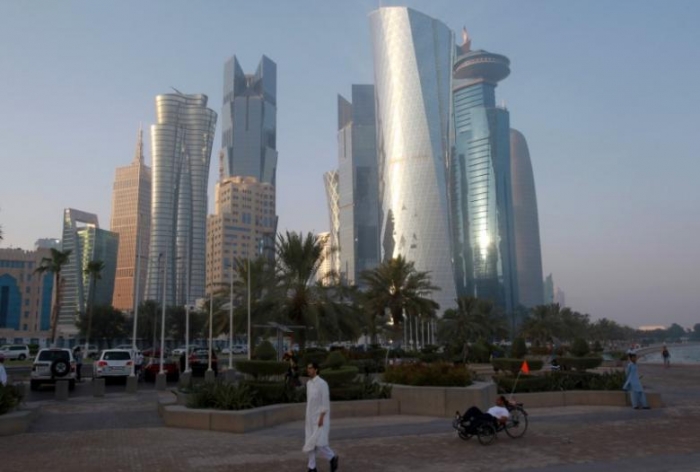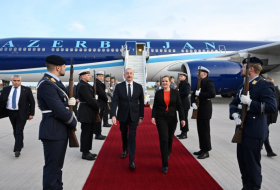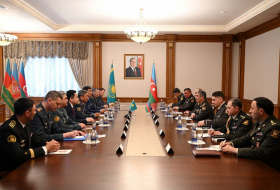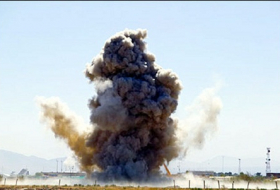The Qataris gave no explanation for the sudden move. But the timing suggested a purposeful snub of Saudi Arabia, which along with three other countries began a punitive boycott of Qatar in June, accusing it of supporting terrorism and having a too-cozy relationship with Iran. Saudi Arabia, the United Arab Emirates, Bahrain and Egypt cut their air and sea routes to Qatar, and closed its only land border, with Saudi Arabia.
Mediation by the United States, Kuwait and Germany has failed to resolve the feud in the gulf, the one corner of the Middle East that has been largely free of war, refugees or political turmoil in recent years. Analysts said the partial blockade has badly weakened the six-nation Gulf Cooperation Council and threatens to undermine regional stability.
The crisis lapsed into a stalemate after Qatar refused an initial list of 13 demands, which included cutting all ties with Tehran. But things took a turn for the worse this week after a visit by a minor Qatari royal, Sheikh Abdullah al-Thani, to the Saudi ruler, King Salman, at his holiday villa in Morocco.
Sheikh Abdullah, who lives in London and comes from a wing of the ruling family that was ousted in a 1972 coup, posed for pictures with King Salman at his lavish coastal palace outside Tangiers. (Estimates of the cost of the king’s holiday run as high as $100 million — expensive even for a monarch who typically travels with an entourage of 1,000 or more.)
Although there was no official explanation for the visit, the Saudi news media played up Sheikh Abdullah’s visit as the beginning of a potential challenge to the emir of Qatar, Sheikh Tamim bin Hamad al-Thani.
Few analysts believe the emir faces a serious threat, but some Qataris took the move as a provocation, and as further evidence that the true intention of the Saudi- and Emirati-led boycott is to engineer leadership change in Doha.
The diplomatic skirmishes are the latest moves in a crisis that, until now, has largely played out in the news media, amid accusations of hacked emails and fake news stories, and in fruitless efforts at conciliation led by worried Western allies like Secretary of State Rex W. Tillerson.
President Trump’s role in the crisis has been hotly debated since he openly sided with the Saudi-led bloc in June, although he has been silent in recent weeks.
The charge that Qatar is too close to Iran resonated with Mr. Trump, who during a summit meeting in the Saudi capital, Riyadh, in May called on Muslim leaders to isolate Iran, a nation that he said “fueled the fires of sectarian conflict and terror.”
Qatar insists that it maintains cordial relations with Iran out of commercial necessity, in that the two countries share the world’s largest gas field, the source of Qatar’s vast wealth, and notes that the United Arab Emirates has a far greater trading relationship with Iran.
Doha also says it has shown solidarity with its Sunni neighbors during disputes with Shiite-led Iran, particularly in the January 2016 attack on the Saudi mission in Iran, after which Qatar recalled its ambassador.
Still, Qatar’s payment last April of a huge ransom to Shiite militants in Iraq, in exchange for a group of hostages that included members of the Qatari royal family, was seen by critics as fresh proof of Qatar’s reckless approach to foreign policy. The incident further inflamed the already tender relations between Qatar and its neighbors.
Since the dispute flared in June, Iran has provided Qatar with sea shipments of fresh food and allowed a stream of Qatari airplanes to cross its airspace. On Thursday, Iran’s Foreign Ministry spokesman, Bahram Ghasemi, welcomed the return of Qatar’s ambassador to Tehran in a short statement. There was no immediate reaction from the four boycotting countries.
Qatar has taken a defiant stance, introducing a raft of measures to ensure the country, whose population is 90 percent foreign, remains attractive to outside investors and workers.
On Thursday, it enacted regulations that give greater protections to foreign domestic workers, many of whom work as nannies, cooks and cleaners. Their limited rights and often poor treatment in gulf countries like Qatar has frequently been a focus of Western human rights groups.
But the strain of the crisis is starting to show on Qatar’s economy and financial system. Depositors from boycotting countries withdrew billions of dollars from Qatari banks in June, forcing the treasury to step in. Qatar’s rating with international credit agencies has also taken a hit.
Qatar’s imports fell 38 percent in June and recovered only slightly last month, according to official figures released on Thursday.
Still, the sanctions have not affected Qatar’s gas exports, the primary source of its wealth, which grew by 7.8 percent in July compared with a year earlier. Analysts say the effect of the sanctions may lessen as Qatar develops alternate sea and air routes.
More about: #Qatar
















































